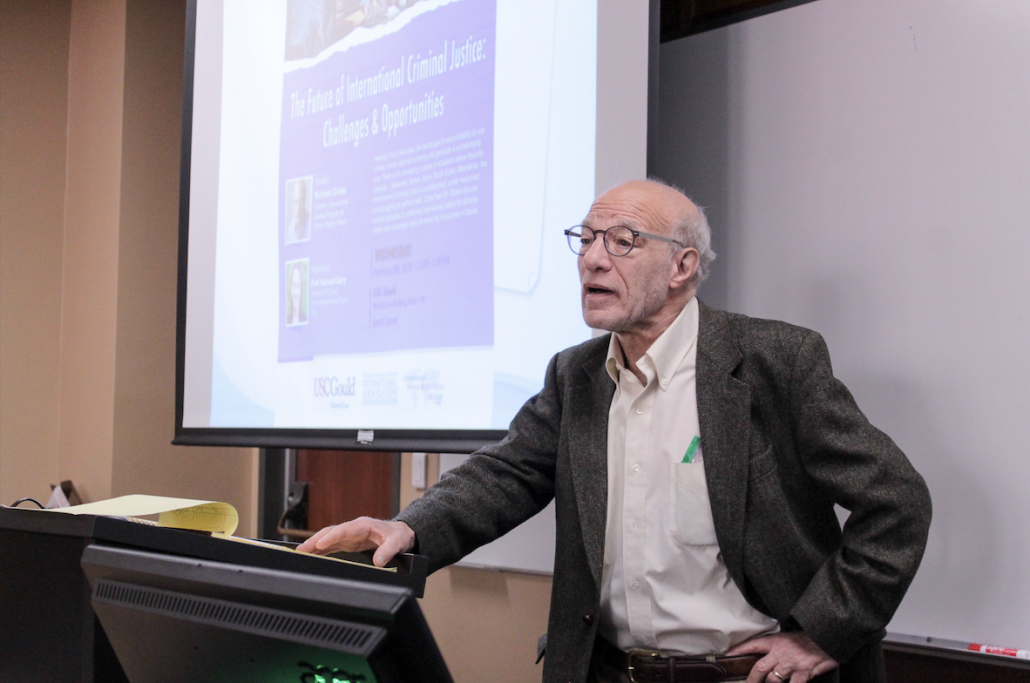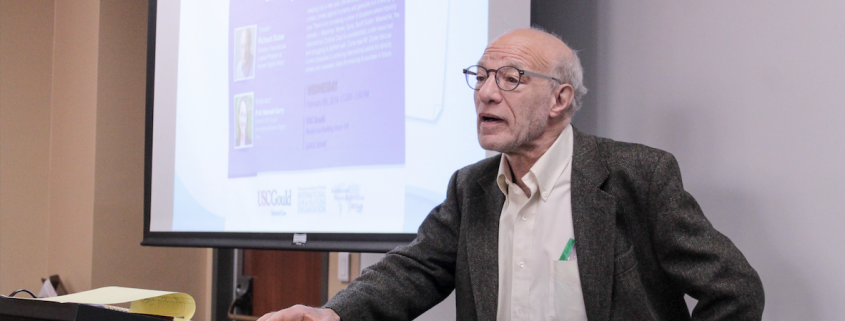International lawyer discusses future of human rights

Richard Dicker, director of the International Justice Program at Human Rights Watch, spoke about the current state of the International Criminal Court Wednesday at a discussion hosted by the Gould School of Law and the International Law and Relations Organization.
Nearly 50 students and faculty attended the event. The discussion, titled “The Future of International Criminal Justice: Challenges & Opportunities,” was moderated by Hannah Garry, a clinical professor of law and director at the International Human Rights Clinic at Gould.
Though Dicker began his career in international law, he said he wasn’t expecting to experience many events that he later became involved in.
“If you had told me, ‘Well, the president of Serbia will be tried by international courts [and] the president of Liberia will be tried by another international court,’ I would have asked you if a science fiction magazine had merged with a law book because it was totally, totally unforeseeable,” Dicker said.
Dicker, who served as an international attorney and worked with numerous governments, discussed the experiences he had while working with governments to increase legal accountability for war crimes.
Dicker said he wanted to go into international human rights law because he was inspired by a personal search for justice and altruism.
“I feel for these communities most affected by [crimes against humanity] that have no other recourse of justice,” Dicker said. “Fair trials matter … I believe fervently in the importance of a fair trial and what it guarantees.”
The conversation revolved around the establishment of the International Criminal Court, a judicial body independent of the United Nations. Dicker said he believes that the United Nations has too much power, and thus the International Criminal Court is important for holding it accountable.
Garry said she appreciated Dicker’s message of optimism about the future of the international courts system.
“I thought [the talk] was a really comprehensive and concise overview of international criminal justice and where we’re at today,” Garry said. “I think that Mr. Dicker really provided rich insight into the evolution of international criminal justice with his personal experience … behind the movement pushing for accountability, and has provided a somewhat hopeful perspective for the future.”
During the event, one student asked, “What impact has [the International Criminal Court] had on international relations overall?”
Dicker responded that the court helps hold nations accountable for major crimes. He concluded the discussion with a call to action, encouraging students in the audience to work toward justice and hold leaders accountable.
“There will be plenty of individuals like yourselves that are committed, involved and active in trying to apply legal norms in situations where crimes occur,” Dicker said. “It’s going to be tough; it’s not 1998 anymore. Yet, there’s a demand for accountability that neither President Putin, President Erdoan or President Trump will be able to upend.”
Vera Zhao, a sophomore majoring in communication and law, history and culture, attended the event for her “Law, Atrocity Crimes, and Transitional Justice” class and said she appreciated the discussion’s global perspective.
“It’s important to encourage more international corporations and not just focus on certain countries,” Zhao said.

